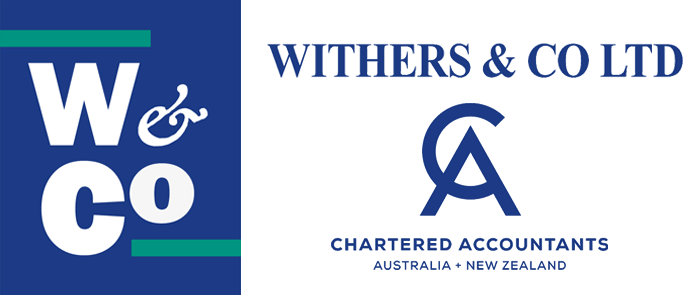"Providing accounting services of the highest quality from our Warkworth premises since 1988."
Newsletters
ACCELERATE NEWSLETTERS
See our latest Accelerate newsletter here.
RESIDENTIAL RENTAL PROPERTIES UPDATE
See our letter in regards to the changes to the tax treatment for residential rental properties here.
ANTI MONEY LAUNDERING ACT
As At 01.10.2018 there are changes to the Anti-Money Laundering Act
How does the AML/CFT Act affect me?
New Zealand has passed a law called the Anti-Money Laundering and Countering Financing of Terrorism Act 2009 ("the AML/CFT law" for short). The purpose of the law reflects New Zealand's commitment to the international initiative to counter the impact that criminal activity has on people and economies within the global community.
Recent changes to the AML/CFT Act mean that from 1 October 2018 accountants must comply with its requirements. The law says accounting firms and other professionals must assess the risk they may face from the actions of money launderers and people who finance terrorism and must identify potentially suspicious activity.
To make that assessment, accountants must obtain and verify information from prospective and existing clients about a range of things. This is part of what the AML/CFT law calls "client due diligence".
Accountants must also conduct client due diligence on the beneficial owners of its clients and any related parties who act on our clients' behalf. The law classifies a beneficial owner as any person that owns greater than 25% of a client, or someone that has effective control of a client.
CLIENT DUE DILIGENCE REQUIREMENTS
Client due diligence requires an accounting firm to undertake certain background checks before providing services to clients or clients. Accountants must take reasonable steps to make sure the information they receive from clients is correct, and they need to ask for documents that show this.
We will need to obtain and verify certain information from you to meet these legal requirements. This information includes:
- your full name; and
- your date of birth; and
- your address.
To confirm these details, documents such as your driver's licence or your birth certificate, and documents that show your address - such as a current bank statement - will be required.
If you are seeing us about company or trust business, we will need information about the company or trust, including the people associated with it (such as directors and shareholders, trustees and beneficiaries).
We may also need to ask you for further information. We will need to ask you about the nature and purpose of the proposed work you are asking us to do for you. Information confirming the source of funds for a transaction may also be necessary to meet the legal requirements.
IF YOU CANNOT PROVIDE THE REQUIRED INFORMATION
If we are not able to obtain the required information from you, it is likely we will not be able to provide services for you. Because the law applies to everyone, we need to ask for the information even if you have been a client of ours for a long time.
Before we start working for you, we will let you know what information we need, and what documents you need to show us and let us photocopy.
Please contact the accountant who will be undertaking your work, if you have any queries or concerns.
FURTHER INFORMATION
Anti-Money Laundering and Countering Financing of Terrorism Act 2009
http://www.legislation.govt.nz/act/public/2009/0035/latest/DLM2140720.html?src=qs
Anti-Money Laundering and Countering Financing of Terrorism (Definitions) Regulations 2011
http://www.legislation.govt.nz/regulation/public/2011/0222/latest/whole.html
Identify Verification Code of Practice 2013
https://fma.govt.nz/assets/Reports/131201-identity-verification-code-of-practice-aml-cft.pdf
Beneficial Ownership Guidelines
https://www.dia.govt.nz/Pubforms.nsf/URL/AMLCFT_BeneficialOwnershipGuideline_Dec2017.pdf/$file/AMLCFT_BeneficialOwnershipGuideline_Dec2017.pdf
June 2018 Deadline for Common Reporting Standards Fast Approaching - Deadline 30 June to Make Disclosure
Under Automatic Exchange of Information (AEOI) legislation which has been recently introduced, the New Zealand Government has agreed to share financial information collected by them with other participating countries to address the problem of cross boarder tax avoidance and evasion.
The Common Reporting Standard that has been brought into effect facilitates the collecting of this information on foreign residents, which is then shared with the tax authority in their relevant tax jurisdiction to ensure taxpayers are paying the correct amount of tax.
This is achieved by requiring financial institutions to collect information and report that information annually to the New Zealand Inland Revenue Department.
The definition of a financial institution is broadly defined and extends to investment entities that have either "in business" or "managed" financial investment activities, which can extend to family trusts and companies. Examples of financial investment income are interest, dividend, managed funds, FIF and PIE income. It does NOT include income from Property Investment or Land.
If you have a trust, company, partnership or estate that earns 50% or more of its income from investing in financial assets and has that income managed either by a financial advisor or a corporate trustee then you may have an obligation to disclose information under these rules by the 30th of June especially where the entity has controlling persons (directors/shareholders/trustees/settlors/beneficiaries/partners) who are not tax resident in New Zealand.
If we have not contacted you directly and you believe the rules may apply then please telephone our office to discuss the actions required.
April 2018 Income Tax Rates for 2018, IRD Use of Money Interest (UOMI), Tax Credits, Paying Contractors or Working as a Contractor, Farm House Deductibility, Bright Line Test, Online Payments to IRD, FBT Company Vehicles, Short Term Rental Accommodation - Air BnB, Book a Bach
May 2017 Changes to Withers & Co Ltd, Income Tax Rates for 2017, Mileage Rates, IRD Use of Money Interest (UOMI), Minimum Wage Rate, Paying Contractors, Farm House Deductibility, 2017 Livestock Herd Scheme Values, GST Refunds/Payments, ACC Invoices/Motor Vehicle Levy Rates, Xero, Audit Shield Insurance, IRD Audit Activity, FBT, Winding up Companies
Click here to view our newsletter archives.






